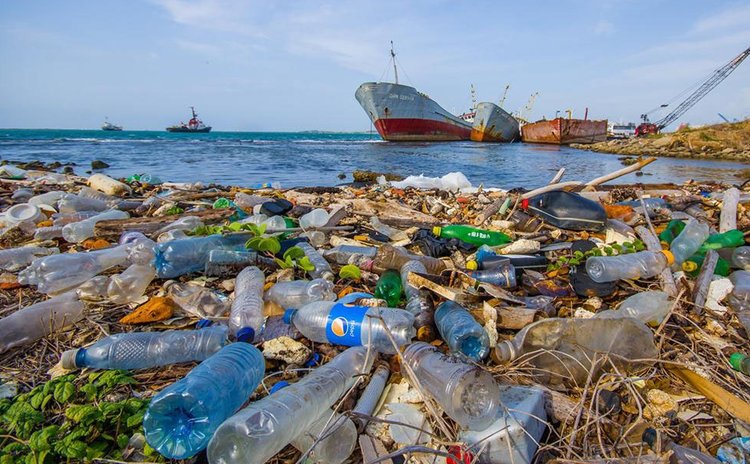OECS Recycle Project: Dominica met the eligibility criteria

Dominica stands out among the rest of the region for its natural beauty, topography, and physical attributes. There is this running joke that Dominica is the only Caribbean Island Christopher Columbus would recognize if he were to visit. However, he would need to recognize the unsightly waste material, precisely the volume of plastic, that is indiscriminately dumped all over the island.
Dominica is one of many countries in the region, or the world, battling the plastic pollution problem. Yet, while some countries have developed practices that work, the Nature Isle is struggling to keep the littering down.
The Dominica Solid Waste Management Corporation (DSWMC) has embarked on several initiatives over the years to encourage Dominicans to be mindful of waste disposal; these include the provision of blue bins for plastics, specific days for the collection of recyclable material, and a PEP shredder on the premises of the country's sole landfill. Unfortunately, some may argue more is needed.
The country has remained resolute in reducing pollution and improving waste management. To this end, Dominica has been chosen as one of two Organization of Eastern Caribbean States (OECS) countries to stage the recycle OECS model demonstration project to reduce plastic pollution in the OECS.
The other country selected is Grenada, and according to information from the OECS Press Room, 'The two countries met the eligibility criteria and were deemed most ready and viable for that purpose.'
This was revealed by the Head of the OECS Environmental Sustainable Division, Mr Chamberlain Emmanuel.
Public Relations Officer of the DSWMC, Rhoda St. John, says this project will complement current strategies on the island. "There is an existing recycling project in Dominica. This initiative will help to strengthen the project and assist greatly with the house-to-house project and the Kalinago Zero Waste Initiative," she said.
Since Hurricane Maria, the message has been further strengthened on how dangerous pollution can be. Drains, culverts, and ravines, blocked or polluted with waste, can be detrimental to a village during the passage of weather systems.
St. John outlined the four main areas of concentration as "institutional framework, legislation, technical support, financial and public awareness."
Mr Emmanuel also shared that for the region's natural resource-dependent economies, these circumstances call for sustainable approaches that are blue, green, and circular to address the threat of pollution. "The Recycle OECS Project is advancing the region's strides to position our perspectives and prospects toward the vision of A Model Blue Economy Region."
He observed that the region is "littered with plans - vision plans, strategic plans, and action plans, but there is a wide lag in implementation," and challenged Member States to "change the tides and get it done".
Tackling plastic pollution is critical for environmental sustainability, human health, and the economic viability of major sectors such as tourism, agriculture, and fishing, key sectors in the region.
This two-year project supports the European Union (EU) Zero Waste initiative in the Caribbean Programme, which aims to strengthen the EU-Caribbean partnership for cooperation in circular economy and solid waste management.
The OECS Press Room further noted the 'key outputs are the design and implementation of a model for sustainable waste separation, collection, and recycling of plastic waste for the OECS.'
The DSWMC PRO emphasized the Corporation has already outlined its plan to drive the project forward.
"The two main outputs are public policy dialogue and public awareness where we engage the public on all levels; social media, community level, stakeholder engagement, private sector and schools," St. John said.
The next step for both Dominica and Grenada is to commence stakeholder engagement activities to present and adapt the model. Once finalized, the model will be available to other OECS member states and small island developing states in the region for adoption or adaption.




